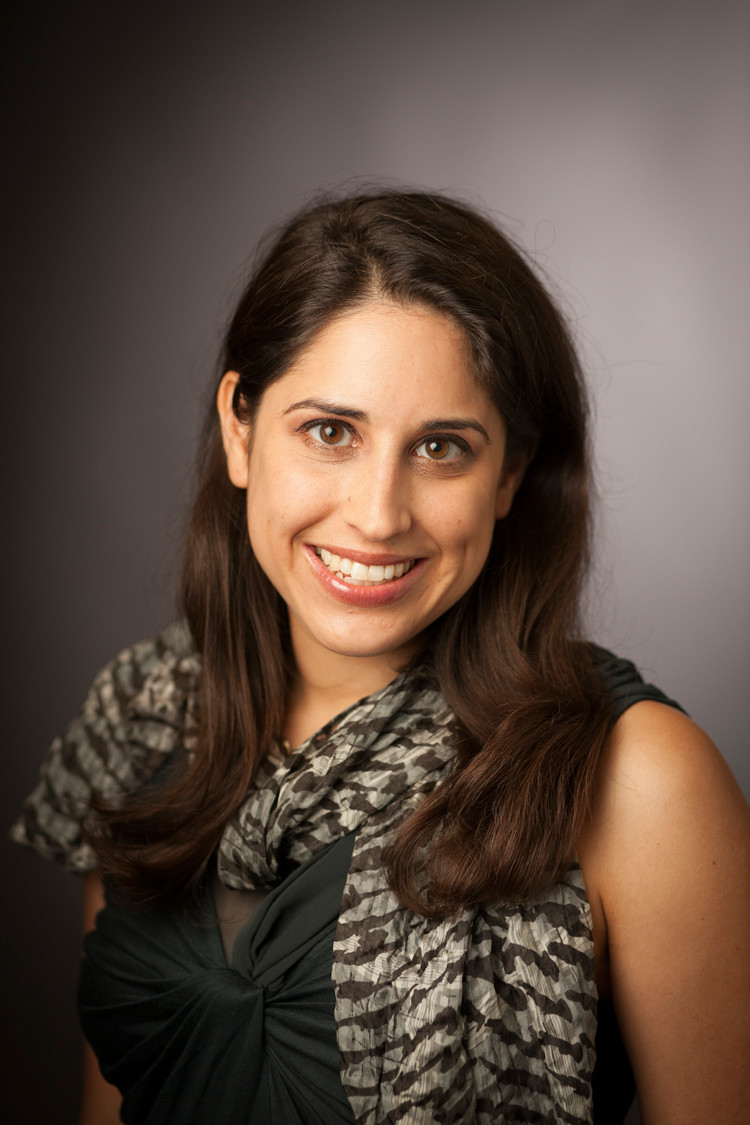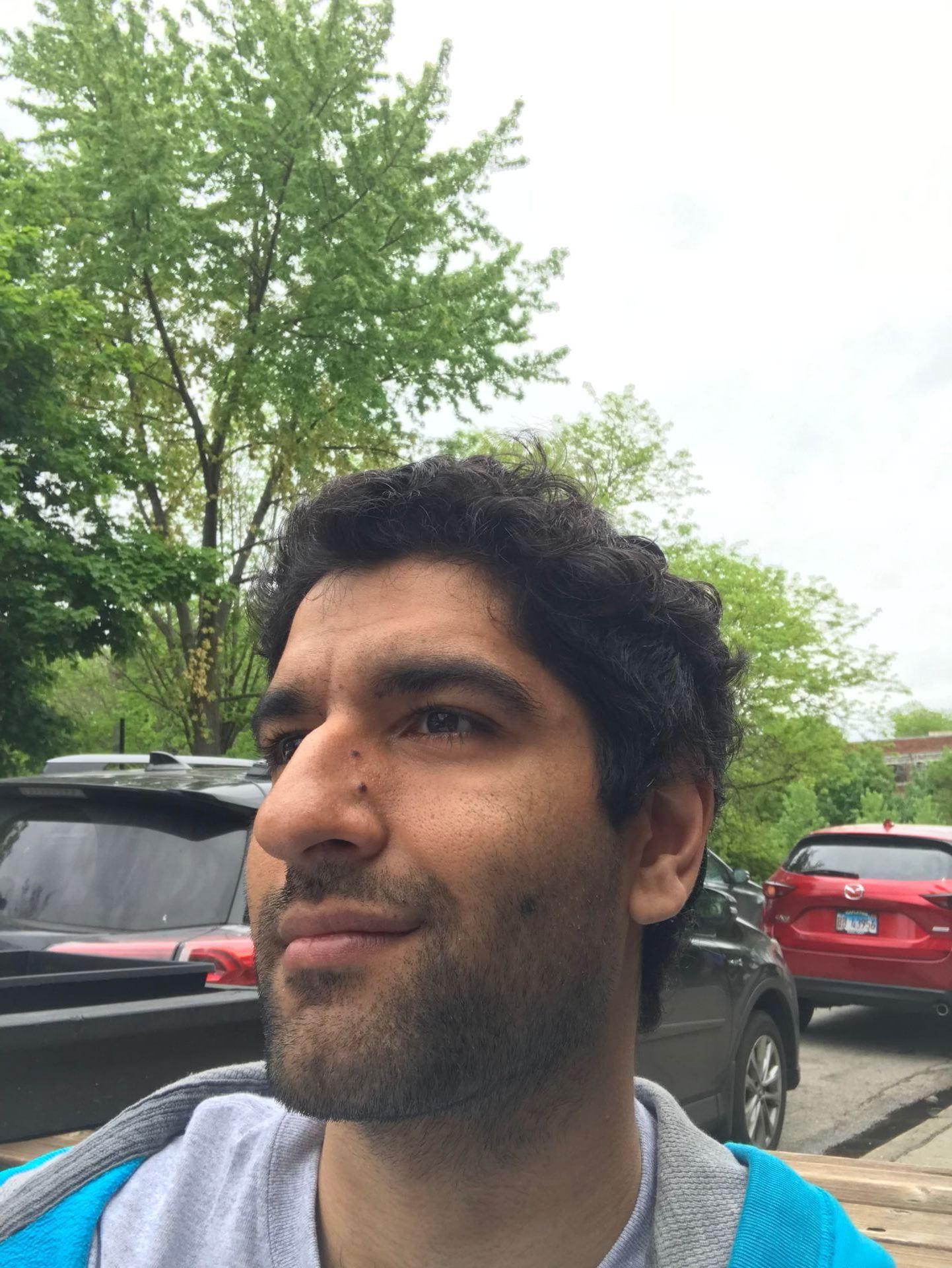Discover recently added resources, including podcasts of interviews with HD faculty from HD Today e-NEWS Listen Notes playlists. Also, read the evidence-based review of the Nurse-Family Partnership Program, and watch Karl Pillemer's training webinar on elder-to-elder mistreatment research and interventions in our Resources section of the drop-down menu.
Tag Archives: Cornell University
John Eckenrode retires leaving a lasting impact on human development

John Eckenrode's achievements have left an indelible mark on the department of human development. He was founding Director of the Bronfenbrenner Center for Translational Research, He founded and co-directed the National Data Archive of Child Abuse and Neglect. He received the 2017 Nicholas Hobbs Award from Division 37 (Society for Child and Family Policy and Practice) of the American Psychological Association (APA) for his exemplary research on child advocacy and policy and is a fellow of APA's Division 7 (Developmental Psychology).
John Eckenrode has played a critical role in the development of the Nurse-Family Partnership Program (NFPP) which has been in existence for more than 40 years.
 Loading...
Loading...
To learn more about Eckenrode's research and a discussion of what is translational research, listen to his interview with Karl Pillemer.
Early puberty challenges and how parents can help
Reprinted from NPR, "How To Help A Kid Survive Early Puberty," May 16, 2019, by Juli Fraga.
From surging hormones and acne to body hair and body odor, puberty can be a rocky transition for any kid. But girls and boys who start physically developing sooner than their peers face particular social and emotional challenges, researchers find.

"Puberty is a pivotal time in kids' lives, and early maturing boys and girls may be more likely to struggle psychologically," says Jane Mendle, a psychologist and associate professor at Cornell University.
A 2018 study conducted by Mendle and her team found that girls who entered puberty significantly earlier than their peers were at higher risk for mental health concerns. They're more likely to become depressed during adolescence, the study finds, and this distress can persist into adulthood.
"For some girls, puberty can throw them off course, and the emotional stress can linger," Mendle says, "even after the challenges of puberty wane."
While the age-range for puberty varies, says Jennifer Dietrich, a pediatric gynecologist at Texas Children's Hospital, the average age of menses is 12.3 years old. However, about 15% of females start puberty much sooner — by the age of 7.
Research from the American Academy of Pediatrics suggests boys are also developing earlier, by age 10, which is six months to one year sooner than previous generations.
Pediatricians haven't identified a lone cause for this shift, but Louise Greenspan, a pediatric endocrinologist at Kaiser Permanente in San Francisco, says childhood obesity, environmental chemical-contributors, and the effects of chronic stress — a hormonal response to neglect or abuse in the family, for example — may all play a role.
At a crucial time when kids long to fit in, puberty can make them stand out. And when breast buds and body hair sprout during elementary school, children often feel exposed. Unable to hide their sexual development from others, they may feel ashamed or embarrassed.
Cosette Taillac, a psychotherapist at Kaiser Permanente in Oakland, Calif., recalls a particular client, a 9-year-old girl, who was started to feel self-conscious playing soccer because her body was developing.
When the little girl no longer wanted to participate in sports — something she had always loved — her parents sought Taillac's help.
"She didn't want to dress in front of her teammates," says Taillac.
Studies show girls who physically mature early, may be more likely than boys to ruminate about these uneasy feelings. According to researchers, this can prolong the emotional distress, which may increase their risk of depression and anxiety.
Still, though girls are more likely to internalize the stress they feel, boys aren't unscathed, says Mendle.
In research by Mendle and her colleagues, early maturing boys were more likely than others to feel socially isolated and to face conflict with friends and classmates. "This may increase their risk of depression," she says,"but we're uncertain if these effects last into adulthood."
Because information about early development tends to focus on girls, parents are often perplexed when their sons start puberty early, says Fran Walfish, a child and adolescent psychotherapist in Beverly Hills, Calif.
Their first clue, she says, may come when a tween boy refuses to shower or wear deodorant.
Helping kids navigate these new social and emotional hurdles can be tricky, especially since puberty spans several years. But don't be afraid to reach out — or to start the conversation early.
Greenspan suggests talking to children about sexual development by the age of 6 or 7. "Starting the conversation when kids are young, and keeping lines of communication open can make the transition less scary," she says.
At times, parents may also need to advocate for their children. "My client's parents worked with the soccer coach to create more privacy for her when dressing for team events," says Taillac. The simple adjustment helped the girl feel safe and more confident.
Of course, not all kids are eager for a parent's help; some shy away from even talking about their newfound struggles. That's sometimes a sign they're confused or overwhelmed, child psychologists say.
"It's important for parents to realize that puberty triggers identity questions like 'Who am I?' and 'Where do I fit in?' for boys and girls," Walfish says.
Taillac says reading books together can help. "Books provide a common language to discuss what's going on, which can open up conversations between parents and children," she says.
For elementary school girls, "The Care and Keeping of You: The Body Book for Younger Girls," by Valorie Schaefer can be a helpful book. Reading "The Tween Book: A Growing Up Guide for the Changing You," by Wendy Moss and Donald Moses can be informative for boys and girls, even as they reach the teen years.
Seeing your child mature early can also worry a parent. If you find yourself unsure of how to intervene, psychologists say, remember that distraught kids often want the same thing we all seek when we're upset — a generous dose of empathy.
Luckily, compassion doesn't require parents to have all the answers. Puberty calls for the same good parenting skills as any other age: being emotionally available to kids through their developmental milestones, witnessing their growing pains, and providing comfort when life throws them curveballs.
That advice is simple; the effects powerful. Scientific evidence shows this kind of parental support helps foster emotional resilience, and that bolsters kids' health and relationships for years to come.
Listen to an interview with Jane Mendle to learn more about her research on early puberty in girls.
The Human Development Graduate Program – an interview with Daniel Casasanto’s students

Daniel Casasanto is Director of the Experience and Cognition Lab in the Department of Human Development. The focus of his research is how does our experience, specifically, our cultural, linguistic, and bodily experiences, affect how we think, feel, and make decisions. In a 2016 interview with Atlantic magazine, Casasanto discusses how hand preference can have a profound influence on our motivations and decisions. Three of his graduate students--Emma Murrugarra, Amritpal Singh, and Ché Lucero--reflect on what led them to work with Dr. Casasanto and enroll in the Department of Human Development Graduate Program.
EMMA MURRUGARRA

Can you tell me a little about your background and why you chose the graduate study program in Human Development program at Cornell?
I graduated from the University of Kansas with Bachelor's degrees in Human Biology, Psychology, and Philosophy. I came directly to Cornell to work with Dr. Daniel Casasanto's Experience and Cognition Lab. I was drawn by both the lab and department philosophy of studying cognition in the broader context of human development (e.g., physical, cultural, biological, etc.).
What research projects have you been involved with during your time here at Cornell?
Since coming to Cornell, I have been involved in projects looking at mental metaphors, specifically how we think about the relationship between time and space. Additionally, I have been investigating potential hormonal influences on the differences in abstract reasoning we find between eastern and western cultures.
AMRITPAL SINGH

Can you tell me a little about your background and why you chose the graduate study program in Human Development program at Cornell?
I graduated from St. John's College, Annapolis, having completed a Great Books program there. I came to the Human Development program to work in the Experience and Cognition Lab because I wanted to study how mind and brain change and develop as a result of the interactions between them and their environments.
What research projects have you been involved with during your time here at Cornell?
One line of research I'm engaged in investigates how the way in which we use our bodies influences the neural organization of emotion. Another line of research I'm a part of investigates how abstract thinking can vary across different cultural contexts.
CHÉ LUCERO

Can you tell me a little about your background and why you chose the graduate study program in Human Development program at Cornell?
I completed my first few years of doctoral work at The University of Chicago. My advisor there, Prof. Casasanto, accepted a position at Cornell in Human Development. I decided to transfer to Cornell to complete my work. UChicago is wonderful and I had the option of completing my doctorate there, but I was lured by the integrative, cross-disciplinary aspect of the Human Development department here at Cornell and decided to make the leap.
What research projects have you been involved with during your time here at Cornell?
My research at Cornell has focused on how the human brain can rapidly approximate numerical quantities. To get a sense of what I mean, imagine if I gave you just one second to glance at a table that had nine oranges and sixteen apples sitting on it. You wouldn't have the time you'd need to count them, but you'd know that there were more apples than oranges anyway! If I then asked you to guess exactly how many apples and how many oranges there were, your answer for each might be off by a small amount, but you'd be very unlikely to make a huge error (e.g. you wouldn't guess twenty-five oranges). You were able to get an approximate sense of the number of fruit very quickly, and without resorting to counting!
Well, that's neat! But, how does the brain do that? Decades of research in humans and primates (who also have number approximation abilities) have pointed to one particular part of the brain as being critical for approximating quantities; the intraparietal sulcus. The intraparietal sulcus is considered to be a relatively "high level" area of the brain because it receives and integrates input from many other areas, including from multiple "lower level" areas that are heavily involved in processing the senses (i.e. audition, vision, etc.) The best understanding has been that the intraparietal sulcus computes approximate number on the basis of sensory information that was fed up to it by the "lower level" sensory areas.
The projects I'm involved in have been testing a relatively new idea, that the visual system (occipital cortex) might treat numerosity as a visual feature, similarly to how it processes features like contrast, color, or edges. We have been using neuroimaging techniques like electroencephalography (EEG) to observe subject's brain activity while we show them scenes containing varying numbers of objects very briefly (thirty scenes per second!). Our initial experiments have provided strong evidence that the visual cortex is itself approximating number without input from the intraparietal sulcus. This discovery is a bit startling and naturally raises questions about the role of the intraparietal sulcus' in numerical cognition, since researchers previously believe it to be the only place in the brain that computes approximate number. We are currently preparing new experiments to figure out what role the intraparietal sulcus is playing. Is it also approximating numerosity independently of the visual cortex? Does it receive pre-computed approximate number representations from the visual cortex? We have hints that part of the intraparietal sulcus' role may be in bringing number approximations to conscious awareness.
Listen Notes – HD faculty podcasts
Listen to the HD Today e-NEWS Listen Notes playlists of podcasts featuring HD faculty interviews.
Explore HD Today’s website!

HD TODAY e-NEWS: Insights from Human Development's Research & Outreach
HD TODAY e-NEWS is a quarterly digest of cutting-edge research from the Department of Human Development, College of Human Ecology, Cornell University. Explore the HD Today e-NEWS website at https://hdtoday.human.cornell.edu/ and discover a wide range of resources:
- Read and share our articles featuring research and outreach by HD faculty and students
- Watch videos on our YouTube Channel
- Listen to podcasts from our Listen Notes playlists
- Download reports and publications
- Learn with online continuing education
- Follow us on Twitter and Facebook
- Participate in a research study
- Subscribe to receive website and e-news updates
Nurse-Family Partnership Program – highest ratings from evidence-based review
The Nurse-Family Partnership Program received California Evidence-Based Clearinghouse for Child Welfare's (CEBC) highest rating, "Well-supported by Research Evidence" in the following areas: Home Visiting Programs for Child Well-Being; Home Visiting Programs for Prevention of Child Abuse and Neglect; Prevention of Child Abuse and Neglect (Primary) Programs; Teen Pregnancy Services.
 Loading...
Loading...
Karl Pillemer’s resident-to-resident mistreatment webinar
Resident-to-Resident Elder Mistreatment in Nursing Homes: Findings from the First Prevalence Study
This webinar, hosted by Consumer Voice in collaboration with the National Center on Elder Abuse (NCEA), discusses resident-to-resident mistreatment and how to prevent and respond to these incidents.
Dr. Karl Pillemer, Director, Bronfenbrenner Center for Translational Research, Hazel E. Reed Professor in the Department of Human Development, Professor of Gerontology in Medicine at the Weill Cornell Medical College, shared findings, recommendations, and best practices from his research regarding the prevalence of resident-to-resident elder mistreatment in nursing facilities. Consumer Voice staff shared information and resources to help increase awareness of these incidents and demonstrate how individualized care is critical in preventing and responding to resident-to-resident mistreatment.
The slides for this webinar can be downloaded as a PDF.
 Loading...
Loading...
Additional Resources
Brochure for Consumers on Resident Mistreatment
 Loading...
Loading...
This brochure (and large font fact sheet), a product produced by the National Consumer Voice for Quality Long-Term Care in collaboration with the National Center on Elder Abuse, identifies mistreatment, shares information about an individual’s rights, and offers resources where they can seek help. The brochure and large font fact sheet can be purchased in bulk from the Consumer Voice store.
Long-Term Care Ombudsman Advocacy: Resident-to-Resident Aggression (Technical Assistance Brief)
 Loading...
Loading...
Resident-to-resident aggression is a serious issue that has a significant negative impact on all residents involved, but incidents are often not reported and investigated. The purpose of this brief is to provide an overview of resident-to-resident aggression in order to assist Long-Term Care Ombudsman (LTCO) programs in effectively responding to complaints involving resident-to-resident aggression, as well as help prevent RRA and reduce the prevalence of these incidents. Click here to view the brief.
Hebrew Home at Riverdale- Research Division R-REM Online Training
Explore HD Today e-NEWS website
HD TODAY e-NEWS: Insights from Human Development's Research & Outreach
HD TODAY e-NEWS is a quarterly digest of cutting-edge research from the Department of Human Development, College of Human Ecology, Cornell University. Explore the HD Today e-NEWS website at https://hdtoday.human.cornell.edu/ and discover a wide range of resources:
- Read and share our articles featuring research and outreach by HD faculty and students
- Watch videos on our YouTube Channel
- Listen to podcasts on our SoundCloud Channel
- Download reports and publications
- Learn with online continuing education
- Follow us on Twitter and Facebook
- Participate in a research study
- Subscribe to receive website and e-news updates
SPRING 2019 ISSUE
Stephen Ceci is elected to the American Academy of Arts and Sciences

Stephen Ceci, the Helen L. Carr Professor of Developmental Psychology in the College of Human Ecology is elected fellow of the American Academy of Arts and Sciences. Ceci’s research focuses on understanding real-world problems and settings. His work spans studies of intellectual development; children and the law; and women in science.
Imaging shows distinct pattern for tastes in the brain's taste center
Using functional magnetic resonance imaging (fMRI) and a new method of statistical analysis, Adam Anderson and colleagues have discovered that sweet, sour, salty, and bitter tastes are represented in distinct areas of the taste center in the human brain.
An interview with Valerie Reyna by CCE News

Dr. Valerie Reyna is Lois and Melvin Tukman Professor and has been Department Extension Leader for the Human Development department of the Cornell University College of Human Ecology since 2005. She also directs the Human Neuroscience Institute and co-directs the Center for Behavioral Economics and Decision Research.
The Integrative Neuroscience Salon - where science is a team sport

Dr. Marlen Gonzalez founded the Integrative Neuroscience Salon to create an inclusive community of "neuroscientifically curious" scientists from disparate disciplines, including human development, psychology, communications, engineering, neurobiology, computer science and law to meet and discuss neuroscience research through presentations and papers.
Anthony Burrow explains how 4-H can foster identity and purpose

Anthony Burrow, Professor in the Department of Human Development and co-director of the Bronfenbrenner Center for Translational Research’s Program for Research on Youth Development and Engagement (PRYDE), was interviewed for the podcast "Extension Out Loud." He discusses how exploring identity and sense of purpose helps young people get more out of programs such as 4-H.
Advancing science communication through Fuzzy-Trace Theory

Watch Valerie Reyna's talk at the National Academies of Sciences, Engineering, and Medicine's (NASEM) Colloquium on Advancing the Science and Practice of Science Communication: Misinformation About Science in the Public Sphere held in Irvine, CA on April 3-4, 2019 and co-sponsored by Rita Allen Foundation, Science Sandbox, Alfred P. Sloan Foundation and The KAVLI Foundation.
Spring 2019
FEATURES
Stephen Ceci is elected to the American Academy of Arts and Sciences

Stephen Ceci, the Helen L. Carr Professor of Developmental Psychology in the College of Human Ecology is elected fellow of the American Academy of Arts and Sciences. Ceci’s research focuses on understanding real-world problems and settings. His work spans studies of intellectual development; children and the law; and women in science.
Imaging shows distinct pattern for tastes in the brain's taste center
Using functional magnetic resonance imaging (fMRI) and a new method of statistical analysis, Adam Anderson and colleagues have discovered that sweet, sour, salty, and bitter tastes are represented in distinct areas of the taste center in the human brain.
An interview with Valerie Reyna by CCE News

Dr. Valerie Reyna is Lois and Melvin Tukman Professor and has been Department Extension Leader for the Human Development department of the Cornell University College of Human Ecology since 2005. She also directs the Human Neuroscience Institute and co-directs the Center for Behavioral Economics and Decision Research.
The Integrative Neuroscience Salon - where science is a team sport

Dr. Marlen Gonzalez founded the Integrative Neuroscience Salon to create an inclusive community of "neuroscientifically curious" scientists from disparate disciplines, including human development, psychology, communications, engineering, neurobiology, computer science and law to meet and discuss neuroscience research through presentations and papers.
MULTIMEDIA
Anthony Burrow explains how 4-H can foster identity and purpose

Anthony Burrow, Professor in the Department of Human Development and co-director of the Bronfenbrenner Center for Translational Research’s Program for Research on Youth Development and Engagement (PRYDE), was interviewed for the podcast "Extension Out Loud." He discusses how exploring identity and sense of purpose helps young people get more out of programs such as 4-H.
Advancing science communication through Fuzzy-Trace Theory

Watch Valerie Reyna's talk at the National Academies of Sciences, Engineering, and Medicine's (NASEM) Colloquium on Advancing the Science and Practice of Science Communication: Misinformation About Science in the Public Sphere held in Irvine, CA on April 3-4, 2019 and co-sponsored by Rita Allen Foundation, Science Sandbox, Alfred P. Sloan Foundation and The KAVLI Foundation.


